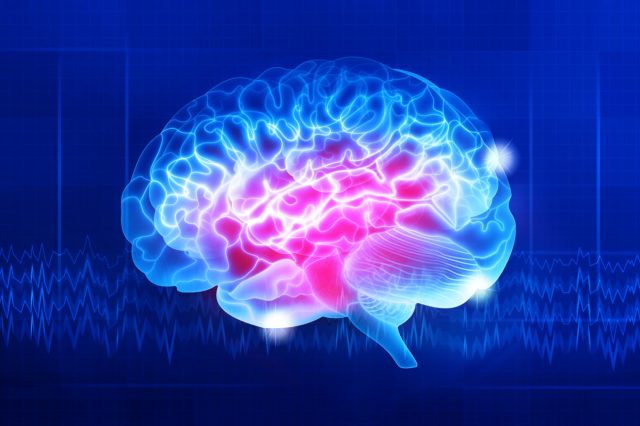
You may be well aware of the benefits of vitamin C and know how vitamin D can positively affect your body, however, you might not be as familiar with vitamin K—specifically, both vitamin K1 and vitamin K2.
“Vitamin K is typically not a vitamin that is supplemented frequently in our society,” Lon Ben-Asher, MS, RD, LD/N with Pritikin Longevity Center tells Eat This, Not That!, “Vitamin K1 is the main form that may be supplemented as opposed to Vitamin K2, however, most people obtain enough from their eating patterns. While most of our Vitamin K1 intake comes from dark, green leafy vegetables, Vitamin K2 is found in red meats, organ meats like liver, and eggs.”
Related: The #1 Best Juice to Drink Every Day, Says Science
Now that you’re more familiar with where you can find this vitamin, you might also be interested to find out that in a new study that will be presented at the American Association for Anatomy annual meeting during the Experimental Biology (EB) 2022 meeting (via EurekAlert!), scientists found that vitamin K2 may protect the brain against a decrease in cognitive function, specifically those often seen from people who deal with dementia and Alzheimer’s disease.

Noting the “very promising impact” that vitamin K2 had on the brain, Mohamed El-Sherbiny, PhD, of AlMaarefa University in Saudi Arabia, who was also the senior author of the study which was performed on rats, pointed out that “Vitamin K2 can be proposed to be a promising approach to attenuate age-related disorders and preserve cognitive functions in aging individuals.”
As for how vitamin K2 affects the brain, Ben-Asher says, “In addition to preventing bleeding by assisting in blood clotting, it reduces apoptosis (cell death) by protecting nerves from harmful substances and compounds which could potentially reduce risk of dementia/Alzheimer’s.”
Beyond that, Ben-Asher notes that vitamin K2 “plays an important role in bone health, it helps support the immune system, and can help prevent cardiovascular disease,” as well as being “essential for skin health.”
At the same time, Ben-Asher points out “the most important limitation in the study,” saying “that there was no suggestion in eating behaviors.” Ben-Asher explains, “It is well-known in human studies that the more saturated fat and dietary cholesterol-rich foods we consume, the more consequential and deleterious the impact on our brain health—specifically hastening the aging process and worsening cognitive abilities. Suggesting individuals consume more animal-based foods and/or supplementing with a large, concentrated exogenous source of Vitamin K2 may have that impact.”
Ben-Asher also says “we must be careful to recommend any vitamin K supplements as they can interact with people who take blood-thinning medications, antibiotics, and antacids.” Finally, “there is no known maximum dose that is recommended for effectiveness as well as potential danger given it’s a fat-soluble vitamin and isn’t easily excreted from the body, especially in large quantities.”
To find out more about keeping your brain sharp, be sure to read This One Habit Can Help Fight Your Brain’s Aging, New Study Says.
